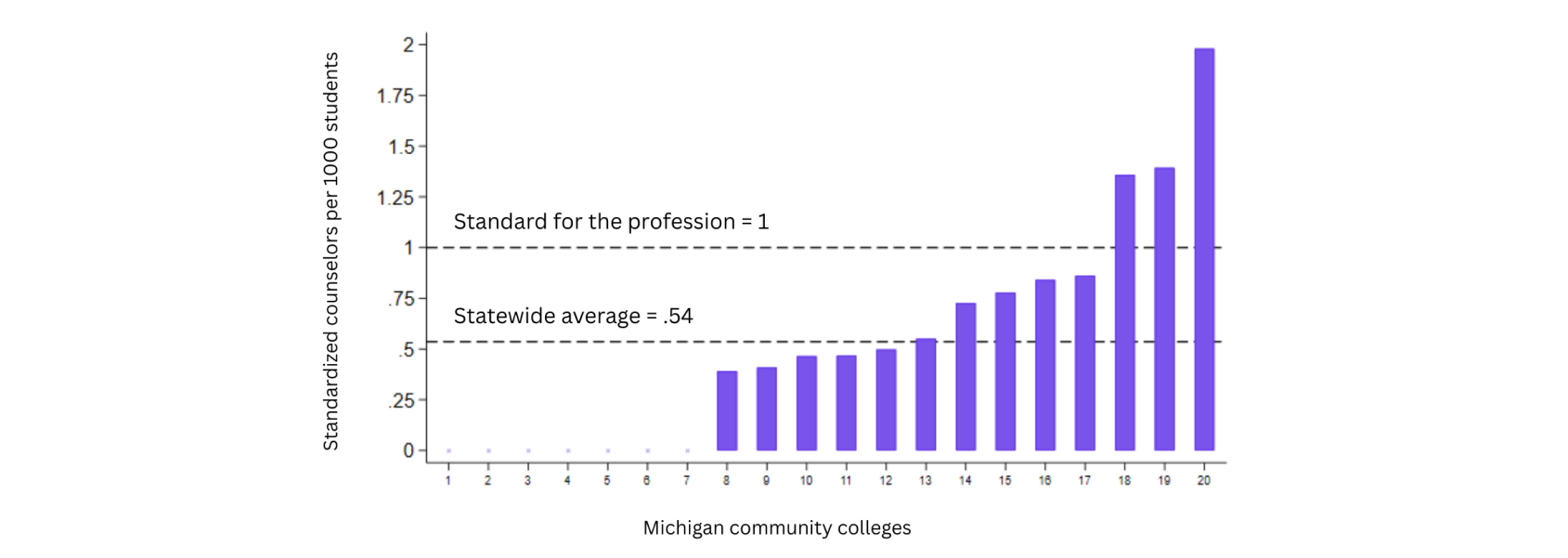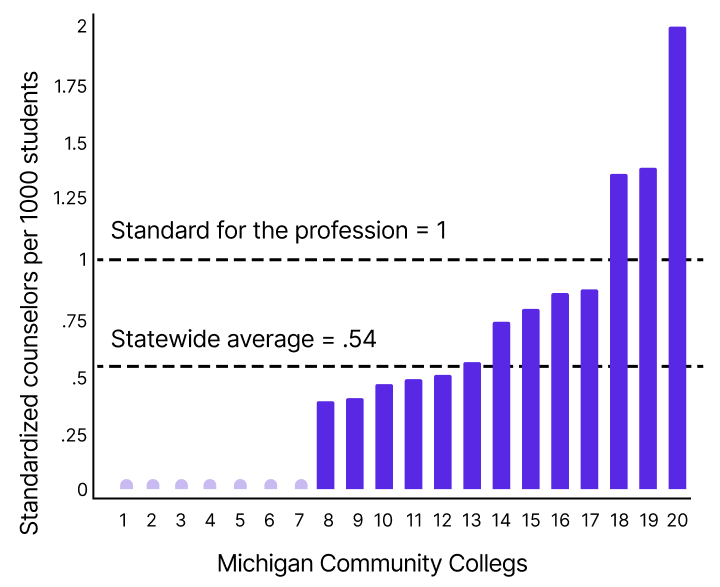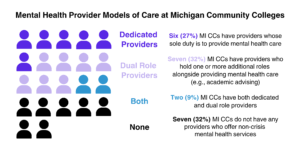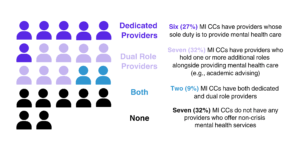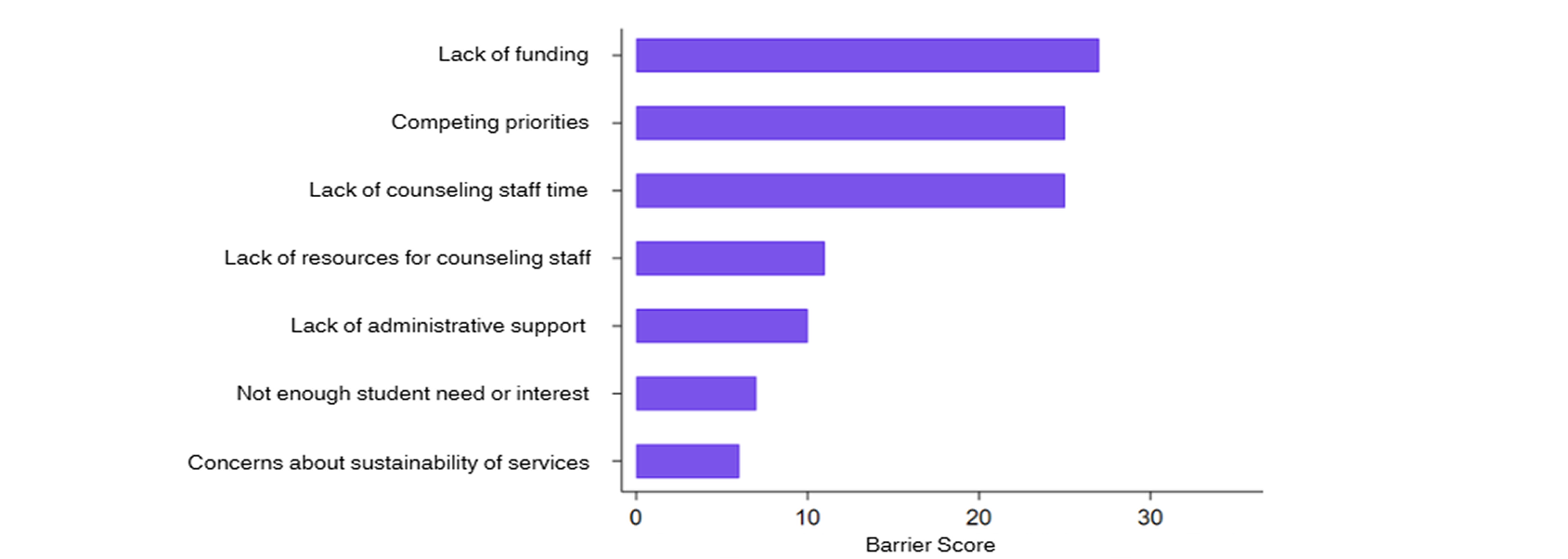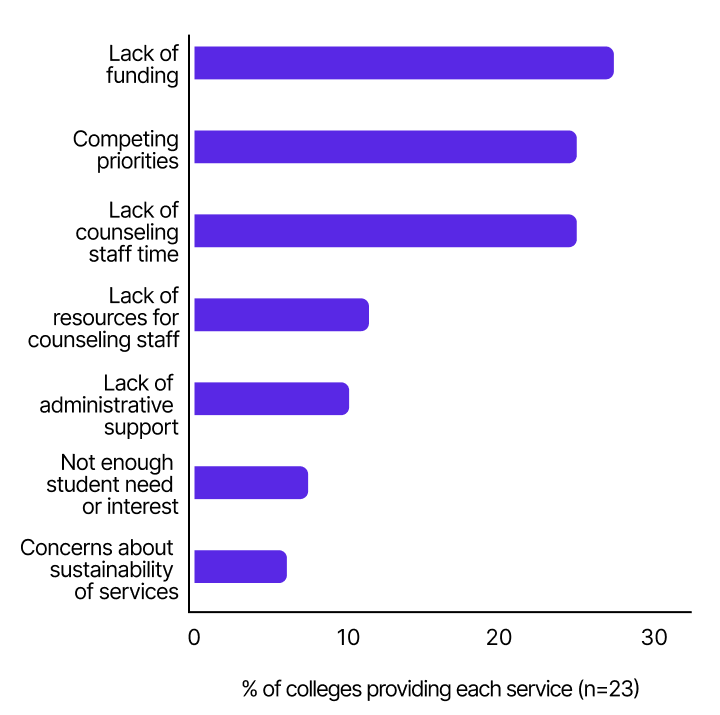Community College Counseling Capacity
Capacity
Gaps in clinical capacity shape a college’s ability to support student mental health.
Capacity to support student mental health varies widely among Michigan community colleges. Comparing your college’s capacity to others – and to professional benchmarks – is critical for advocacy efforts and resource planning.
Capacity to support student mental health varies widely among Michigan community colleges. Comparing your college’s capacity to others – and to professional benchmarks – is critical for advocacy efforts and resource planning.
There’s no single model for providing mental health care to students.
Among colleges that offer non-crisis mental health care, like individual counseling, the way services are staffed can look very different. The chart below highlights the range of care models used to support students:
Among colleges that offer non-crisis mental health care, like individual counseling, the way services are staffed can look very different. The chart below highlights the range of care models used to support students:
Persistent barriers limit colleges’ ability to strengthen mental health services.
Many colleges report a desire to expand the mental health services available to students on their campus, but face significant barriers to enacting change. Addressing these challenges is essential for building more responsive and equitable support systems.
Many colleges report a desire to expand the mental health services available to students on their campus, but face significant barriers to enacting change. Addressing these challenges is essential for building more responsive and equitable support systems.

